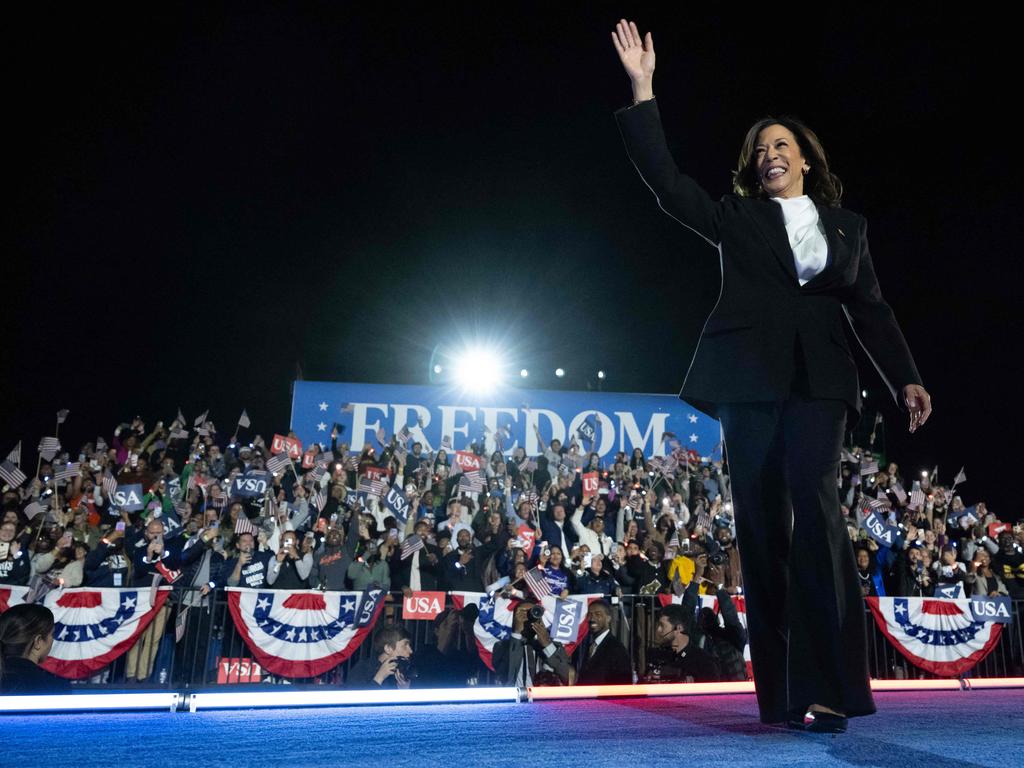MAGA redux carries bitter truths for the left


If I were Trump, I wouldn’t give that aide a job. As for me, I’m sure he’ll quickly forget my name and my existence.
But there is much we can learn from the American election.
First, there’s the impact of negative campaigning. There’s no doubt it works but it has to be carefully calibrated.
The Democrats and their fellow travellers relentlessly ran the line that Trump was a fascist, a Nazi, a threat to democracy and a friend of Vladimir Putin, Kim Jong-un and Xi Jinping. So exaggerated were these claims, so hysterical, that aspect of the Democrats’ campaign was completely disregarded.
After all, it wasn’t as though Trump were an unknown quantity. He already had been the president for four years and he didn’t terminate democracy and become a fascist leader during that time, whatever you might have thought of his policies.

And it is true he was convicted of an offence, but the perception of many voters was that the conviction was politically driven – which it probably was. The lawfare against Trump became, after a while, a complete obsession of the Democrats that became self-defeating.
Kamala Harris may have been the Vice-President for the past four years but she has been very low profile. The challenge for her was to get herself known and to be seen as someone who successfully could address the concerns of the American people. That required her having a suite of relevant policies and being able to argue for those policies against the onslaught of the Republicans.
What’s more, she did have some policies to address the cost-of-living issue and immigration, yet she spent the latter part of the campaign reverting to endless attacks on Trump.
However imperfect Trump may be, the only compelling case Harris made for her candidacy was that she was not him. That was never going to work with half the population who were already committed to Trump.
For Trump himself, his campaign’s great strength was his capacity to stare down his numerous critics in politics and the media.
His campaign was not perfect, though. It had two serious weaknesses. The first was Trump’s failure to stick to a message.
Some of his personal attacks, the claim of immigrants eating cats and dogs in Springfield, Ohio, the personal abuse of Liz Cheney and so on were certainly not vote winners. His attacks on Harris were also too personally abusive. To call Harris thick and unintelligent might appeal to his base but would be seen only as vulgar party politicking by swing voters.
He would have done even better had he stuck to the cost of living, immigration and no world war themes. They were cut-through messages.
Second, the Democrats did do well in attacking Trump over the abortion issue. It wasn’t, of course, true that Trump himself wanted to ban abortions but he was held responsible for the US Supreme Court overturning Rowe v Wade, as he had appointed three members of the court. That decision ruled it was unconstitutional for the federal government to make policy on abortion – that remains the preserve of the states.
Still, Trump’s attempt to present himself as pro-choice was unsuccessful and in doing that he not only failed to convince many women who were pro-choice but also alienated some of his evangelical supporters who were pro-life.
There’s a lesson there for Australia: keep away from the abortion issue as best you possibly can. Trump lost a large number of female votes because of this issue and you can be sure the Australian Labor Party is planning to run this issue against the federal Liberals.
One of the good things that has come out of the American election is that American voters are less inclined to vote on racial or ethnic lines.
That about 25 per cent of black men voted for Trump and he won a significant proportion of Hispanic votes is a sign that the messages about race are losing traction. Academics and commentators who have been promoting critical race theory will be deeply disappointed by this.

Their attempts to salami slice the country into racial and ethnic groups in competition with each other has been sorely defeated by this election. Voters are clearly much more concerned about the cost of living and illegal immigration then they are their own racial or ethnic groups.
This was an election that was a step towards what new British Conservative Party leader Kemi Badenoch says of racial politics: “I look to the day when the colour of our skin is no more significant than the colour of our eyes or the colour of our hair.”
Finally, do we Australians have anything to fear from a Trump presidency? Generally speaking, I think Trump will continue to maintain a strong alliance with Australia and AUKUS will be secure. I’ve said before, I doubt that Trump will impose tariffs on Australian exports to the US.
And it will be important that our federal government does everything it can to ensure that doesn’t happen.
As to personnel, it is true that Anthony Albanese and Kevin Rudd have given very negative character references of Trump in years gone by. Be that as it may, that’s politics. Trump and his administration, when they finally come to office on January 20, should accept Australia’s right to choose its own ambassador and understand that Rudd can change his mind on any topic as quickly as the summer breeze can change direction.
This is the worst day for the left since Vladimir Lenin got off the train in St Petersburg in 1917.
Alexander Downer was foreign minister from 1996 to 2007 and high commissioner to the UK from 2014 to 2018.






The only Australian I can think of who will be in bad odour with Donald Trump is me. I don’t think he’ll ever forgive me for passing on information his own aide gave me that the Russians had intelligence on Hillary Clinton that would be damaging.